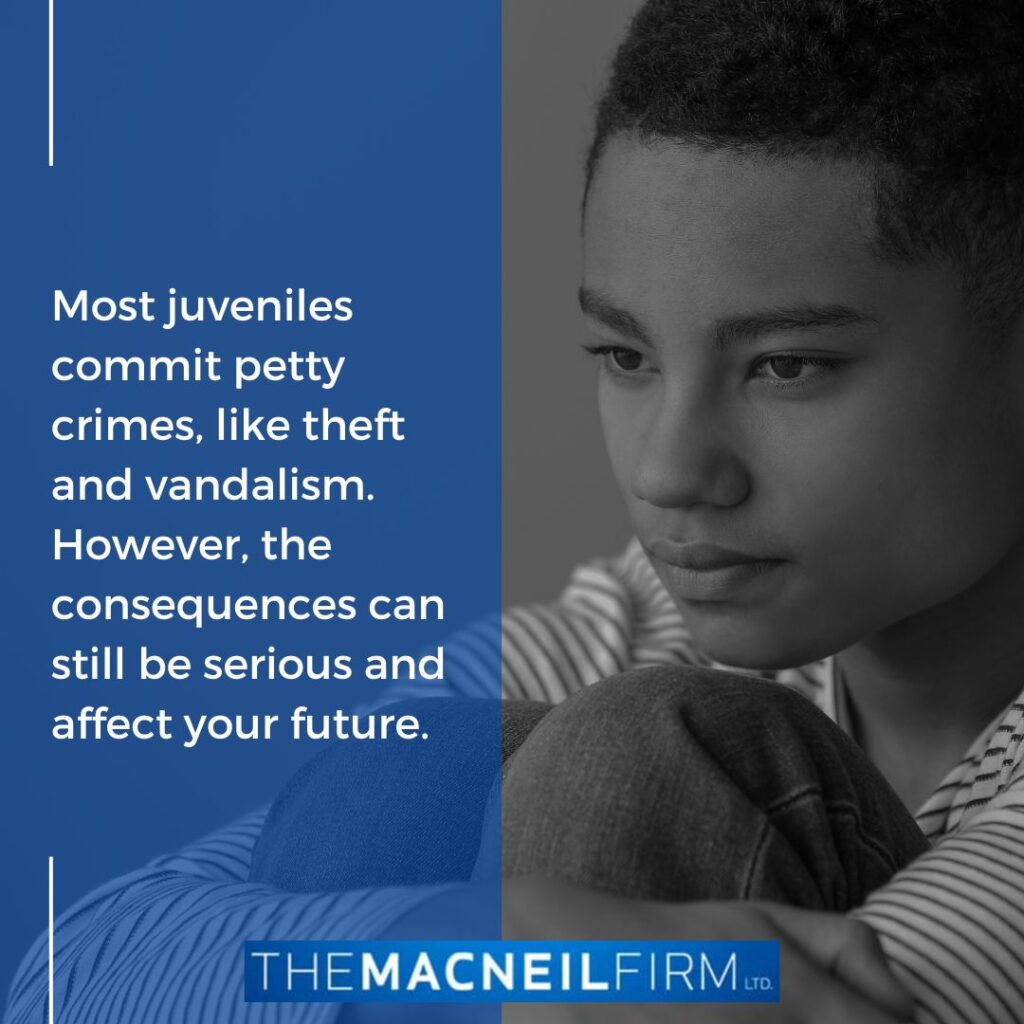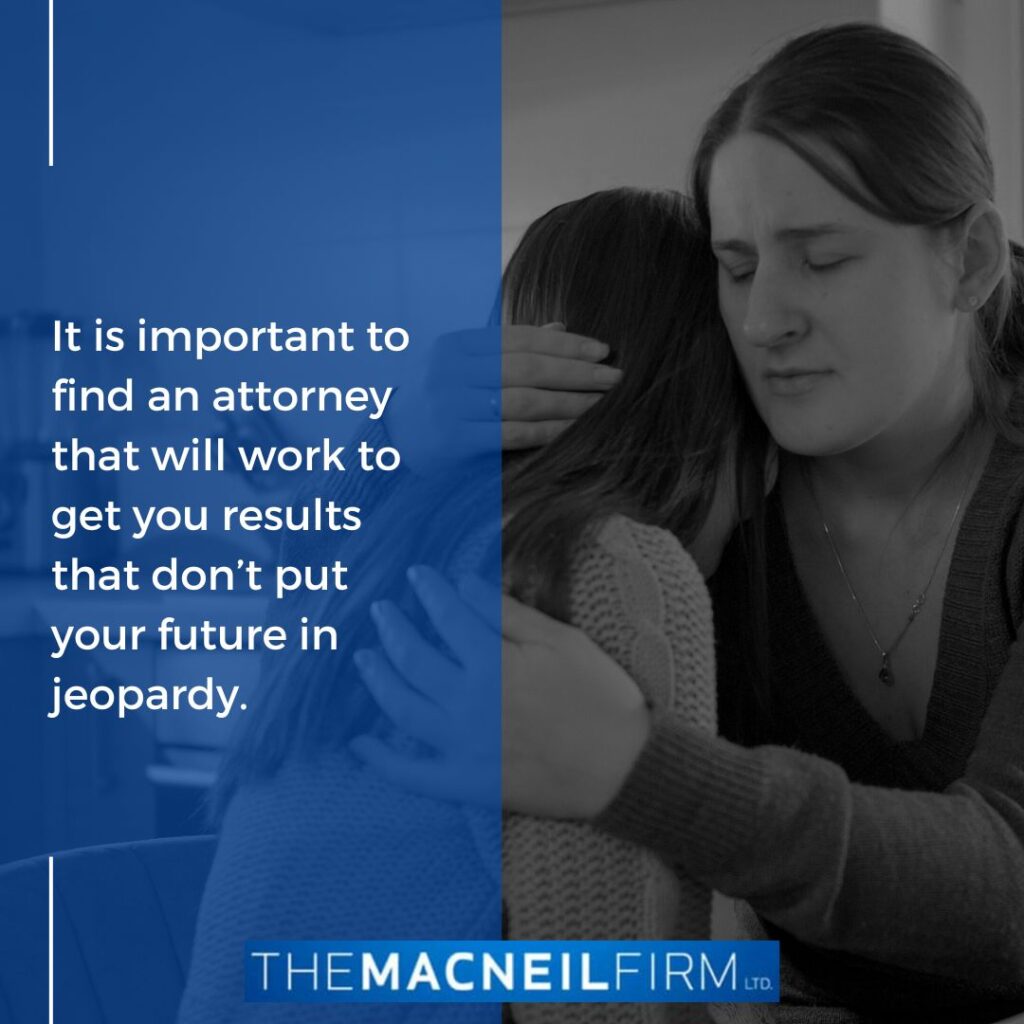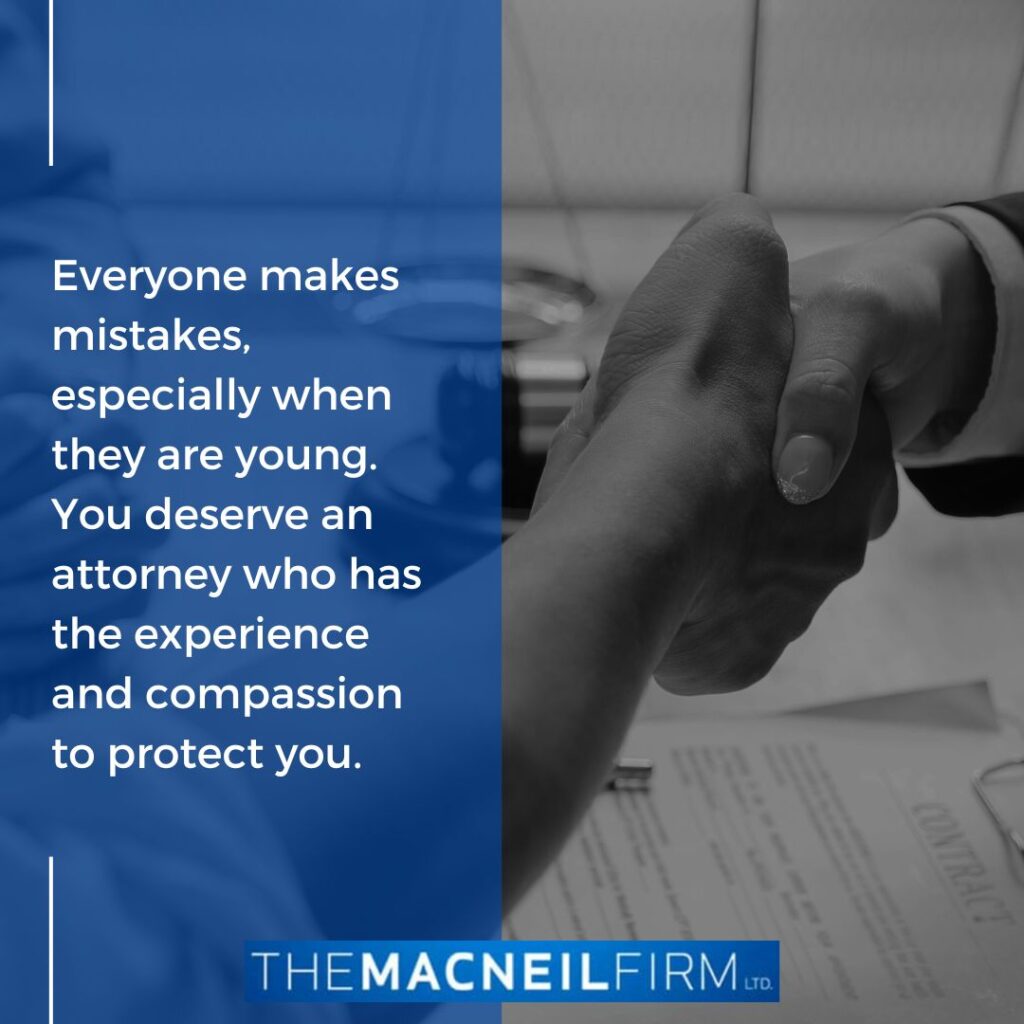Our firm handles all types of cases, including both juvenile criminal cases and traffic offenses. Legally, a minor is anyone under the age of 18. We represent juveniles in felony and misdemeanor cases like drug possessions, gun cases, juvenile robbery, armed robbery, burglary, DUI, violence cases, and financial crimes.
No type of criminal offense is truly a minor offense. Even a misdemeanor carries a possible period in jail. These cases can leave impressions that last a lifetime and you should hire an attorney to make sure that the minor has the possibility of a favorable outcome. The MacNeil Firm is here to help as nothing is more rewarding that securing a victory for our clients.
In Illinois, anyone under 18 is considered a juvenile. The law has changed on that recently. It used to be that anyone under 17 was a juvenile, but they raised the age. There are, however, some special rules that would allow a prosecutor to petition the court to remove a case from juvenile court and transfer it to adult court. It’s somewhat difficult for them to do this and it is generally reserved for the most serious and violent crimes, like armed robbery, criminal sexual assault, or murder.
Procedure for Juvenile Criminal Cases
There are a few ways that the arrest of a juvenile can be handled. It’s generally in the discretion of the police department. One way is after a juvenile has been charged, the minor would be released to his or her parent or guardian and then they are notified of a court date after that.
Other times, the police may keep the juvenile and transfer them directly to court for a detention hearing. Regardless of how the arrest is handled, it’s always up to the judge to decide whether or not they are going to lock the minor up and keep them in custody or release them to the parents while the case is pending. Some counties also allow electronic home monitoring, sometimes called house arrest.
Juvenile courts are focused more on rehabilitation than punishment. Almost every juvenile case that is resolved has a disposition of probation with a treatment or counseling aspect. A juvenile is almost never just put on probation and told to stay out of trouble.
Almost every juvenile case has either a mental health evaluation or a drug and alcohol evaluation and then, based on that evaluation, there may be counseling or treatment. The law views juveniles as a particularly receptive to treatment and rehabilitation, and the hope is that if we treat these problems while they are still young, then maybe they won’t be an offender in the future.
Juvenile Court
The procedure for juvenile criminal cases is similar to adult court with a couple of exceptions. Both adult and juvenile courts require the exchange of discovery. Discovery is all the evidence in a case and the prosecution is required to disclose that to the defense.
One difference is that juvenile criminal cases generally can only have a bench trial, not a jury trial. A bench trial is a trial where only a judge listens to the evidence and decides whether the individual is guilty or not guilty. There are a couple of exceptions for very serious cases. For the most part, the biggest difference between adult and the juvenile court is that a juvenile cannot have a jury trial.
The other big difference is that an adult court is a public court. This means that anybody can walk into a courtroom and listen to a trial. In juvenile court, everything is in secret. It’s a private courtroom. Anyone else who has court on that particular date has to wait outside the courtroom so that nobody can hear what’s going on. The files are not available to the public; they are sealed in the clerk’s office.
Convictions and Criminal Records
Juvenile courts retain jurisdiction until offenders turn 21, so the longest a person can be sentenced to prison in juvenile court is until age 21. There are exceptions, but that’s the rule. If a juvenile turns 18, sometimes they are transferred to an adult facility.
Juvenile criminal cases are sealed and not visible to the general public. You don’t need any sort of alternative sentencing disposition for that to happen. All court hearings are held in private and the files are not accessible to the public. Regardless of what the disposition is in a juvenile case, the public won’t know about it and it will not appear in a criminal background check.
For more information on juvenile criminal cases Handled In Illinois, a free initial consultation is your next best step. Get the information and legal answers you are seeking by calling (708) 218-0947 today. The MacNeil Firm has the experience and compassion to support you through the legal process and get you remarkable results.



